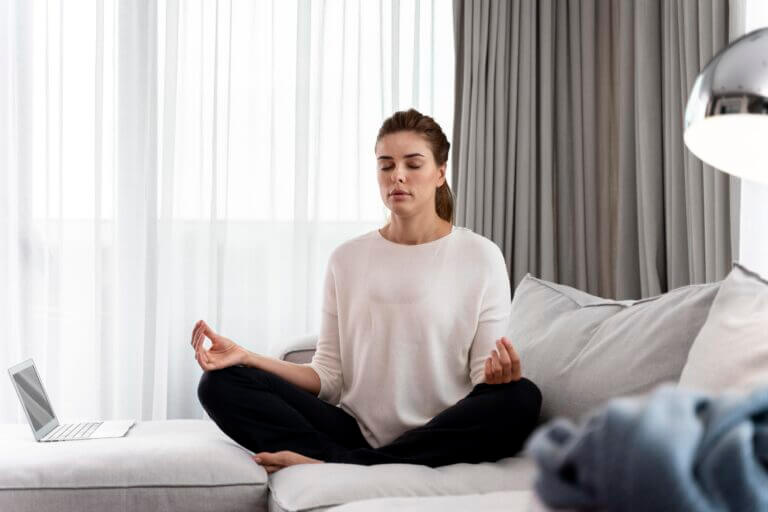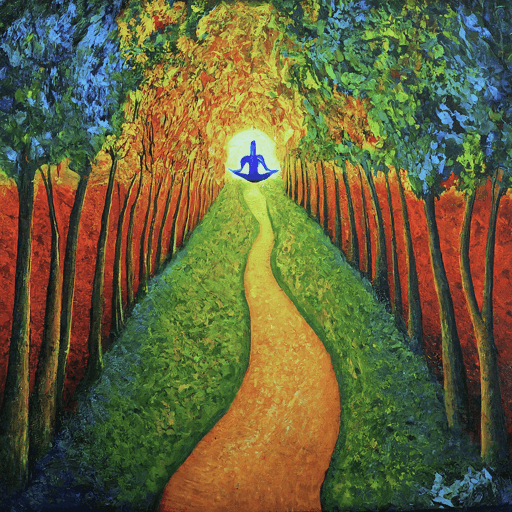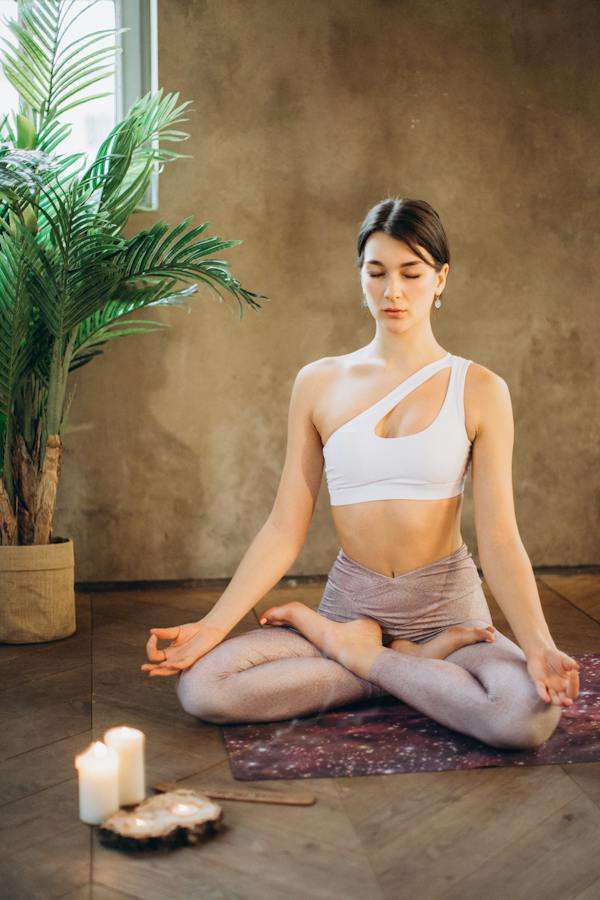In Todays busy life, anxiety has become an unwelcome companion for many. The quest for serenity and mental peace has led people to explore various avenues, and one such effective path is meditation. Through this blog post, we cover profound connection between meditation and anxiety, offering insights, research-backed information. We also provide practical tips for incorporating meditation into your daily routine.
The Science Behind Meditation and Anxiety
Stress Reduction
Meditation can significantly reduce stress levels by activating the body’s relaxation response. However, we need to focus on practicing mindfulness meditation. Meditation can enhance the ability to manage stress, leading to lower one’s anxiety levels.
Neurological Impact
Meditation has a positive impact on the brain, particularly the areas associated with emotional regulation. Studies show that regular meditation can lead to structural changes in the brain, promoting emotional resilience and reducing anxiety symptoms.
Guided Meditation in Anxiety Management
Guided meditation provides a structured approach for beginners and those seeking specific outcomes. It often incorporates visualization and verbal cues, guiding individuals through a calming mental journey. This personalized guidance can be especially effective in alleviating anxiety by providing a focus and reducing wandering thoughts.
Exploring Different Meditation Techniques

Mindfulness Meditation
Mindfulness meditation involves focusing on the present moment without judgment. It can be practiced through guided sessions, breathing exercises, or simply by paying attention to your surroundings. This technique is known to improve overall well-being and alleviate anxiety symptoms.
Loving-Kindness Meditation
This form of meditation involves cultivating feelings of love and compassion towards oneself and others. With positive emotions, individuals can counteract negative thought patterns that contribute to anxiety.
Practical Tips for Integrating Meditation into Your Routine
Start Small: Begin with short meditation sessions, gradually increasing the duration as you become more comfortable.
Consistency is Key: Establish a regular meditation routine. Consistency is crucial for experiencing the long-term benefits of meditation.
Find Your Style: Experiment with different meditation techniques to find the one that resonates with you the most.
Conclusion
Incorporating meditation into your daily life can be a transformative journey towards managing anxiety. The power of mindfulness and self-compassion can reshape your mental landscape, providing relief from the grips of anxiety.
Frequently asked Questions
How long should I meditate to see results?
While even short sessions can offer immediate relaxation, aim for at least 10-20 minutes daily to experience long-term benefits.
Can meditation replace medication for anxiety?
Meditation can be a complementary strategy, but it’s essential to consult with a healthcare professional for personalized advice on managing anxiety.
Is meditation suitable for everyone?
Yes, meditation is accessible to people of all ages and backgrounds. However, individuals with certain mental health conditions should consult a healthcare provider before starting a meditation practice.
What if I can't clear my mind during meditation?
It’s normal for thoughts to arise. Instead of suppressing them, gently redirect your focus to your chosen point of meditation, whether it’s your breath or a mantra.
Can I meditate if I have a busy schedule?
Absolutely! Even brief moments of meditation amidst a busy schedule can contribute to stress reduction. Discover moments of time, like the intervals between tasks or the quiet prelude to sleep.



